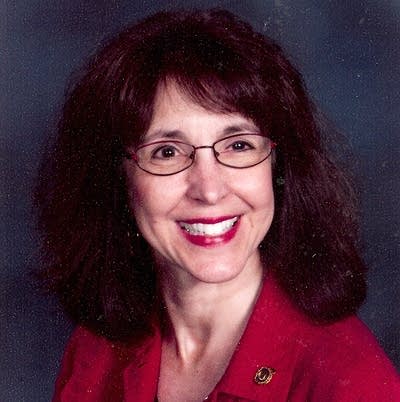To head off future bullies, we have to turn bystanders into upstanders
Go Deeper.
Create an account or log in to save stories.
Like this?
Thanks for liking this story! We have added it to a list of your favorite stories.

The Edina public schools recently held an event about bullying, cosponsored by many of the city's foundations and organizations. The speaker lineup was terrific. An excellent film was shown. Local restaurants donated refreshments.
I expected a huge crowd, at least 600 people. But only about a hundred showed up, including the presenters, exhibitors, sponsors, and a few parents of students who had been bullied. So the question is: Who cares? Apparently not enough of us, even though bullying in schools and online has generated a great deal of national, state and local media attention in the wake of dozens of tragic youth suicides, including several in Minnesota.
MPR's recent series of reports pointed out that Minnesota has few policies governing school-based bullying and virtually none that address electronic bullying.
Why don't more people care?
Turn Up Your Support
MPR News helps you turn down the noise and build shared understanding. Turn up your support for this public resource and keep trusted journalism accessible to all.
Some feel that bullying is just a phase in children's path to adulthood, something bullies will grow out of and the bullied will survive. Others apparently think it's a matter for the schools to address, believing that's where most of it occurs. And many people are simply bystanders, those who may know that the problem is terrible, is increasing, is tearing apart the social fabric of families, schools and communities - but they stand by and hope that somebody else will do something so they don't have to.
There's something wrong with each of these responses.
First, a bully is a bully forever. Adults who abuse their children and their partners often were children who were slamming other kids into lockers. One in three women in the United States will be a victim of domestic abuse in her lifetime. We can prosecute the perpetrators and set up shelters for the women and their children, but how do we prevent this from happening? One approach is to ensure that the problem of child bullying is taken seriously and that the long-range implications are addressed up front, before a child bully becomes an adult abuser.
Second, bullying is not exclusively a school problem. Bullying happens in neighborhoods, on playgrounds, in backyards and in our homes. We have to accept that bullying affects our entire community, not just the local school.
And third, bystanders make the problem worse. When we stand by and do nothing, either because we don't know what to do or we don't want to get involved, we send a silent message that bullying is, at some level, acceptable. When we stand by, we become complicit with the bullies. When we fail to stand up for the bullied, each of us is responsible for the suicides, the depressions and the childhoods lost to despair and fear.
So what's the answer?
We all have to get involved. If we tolerate bullying, we tolerate violence against children, violence in our homes and violence in our communities. But even beyond that, we tolerate the gross injustices that we see around the world in Congo, Darfur and other places far away, violence that breeds terrorism and lawlessness that ultimately affects us all. If we don't take a stand against violence in our own schools, backyards and playgrounds, how will we ever become motivated to advocate for a more peaceful and just world beyond our own borders?
Our youth need to learn how to stand up for their own rights and for the rights of their peers when bullies challenge those who are different - too tall or short, too gay, Jewish, Muslim or Somali, too fat or too thin, too ugly or too pretty, too rich or too poor. My organization, World Without Genocide, works to educate young people to become "upstanders" instead of bystanders to injustice.
The answer to the question "Who cares?" is simple. We all must care.
----
Ellen J. Kennedy is the executive director of World Without Genocide at William Mitchell College of Law. The organization's website has information about its summer high school institute, called "Child Soldiers and Bullying: Taking a Stand against Genocide and Hate."



